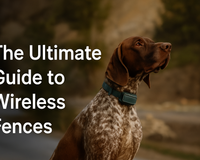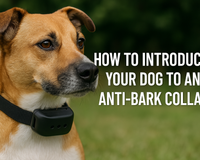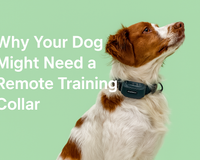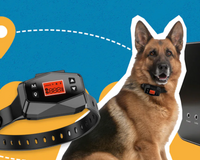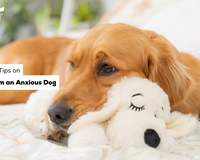Bringing a dog home is exciting — but it also comes with a tonne of questions.
When should I start training?
What’s the right tool for their age?
Are they too young for collars or correction?
We get asked these every week at eDog. So we’ve laid it all out – clear, simple, and age-by-age. No fluff. Just what works.
8 Weeks Old – Start with Structure, Not Strictness
At 8 weeks, your puppy is a sponge. Everything is new.
This isn’t the time for strict training – but it is the time to set routines and boundaries.
What to Focus On:
-
Crate training and sleep routines
-
Toilet training (reward every success)
-
Teaching their name + recall basics
-
Soft exposure to sounds, people, and handling

Best Tools at This Puppy Stage:
-
✅ Soft puppy harness and lightweight lead
-
✅ Playpen or baby gate to manage space
-
✅ Chew toys (for teething relief)
-
✅ Dog Anxiety Solutions (for settling into their new home)
-
✅ Training treats – tiny, soft, low-calorie
Tip: At this age, training is just about building trust and reinforcing good choices.
6 Months Old – Teenage Rebellion Starts Here
At 6 months, everything your dog learned as a pup gets tested.
They’ve got more energy, confidence – and independence. Expect some disobedience.
What to Focus On:
-
Leash training (and stopping pulling)
-
Strengthening recall
-
Teaching calm greetings (no jumping)
-
Interrupting behaviours like barking, chewing, chasing
-
Mental stimulation (they get bored fast now)
Best Tools at This Stage:
-
✅ Remote training collar – start with beep and vibration
-
✅ Muzzle – for safety in new situations or around kids
-
✅ Stronger chew toys – especially for large breeds
-
✅ Treat puzzles and slow feeders – mental workouts
-
✅ Long line – for safe off-leash practice
Tip: Don’t wait for bad habits to “go away”. Training now prevents re-training later.
1 Year Old – Lock in Good Habits
Your dog might be full-grown in size by now, but they’re not done learning.
This is when behaviours either become solid… or spiral.
What to Focus On:
-
Reliable off-leash recall
-
Calmness around distractions
-
Bark control (especially at home or the fence)
-
Advanced training or sport skills
-
Positive social behaviour with people and other dogs
Best Tools at This Stage:
-
✅ Long-range remote training collar – for recall + boundaries
-
✅ Anti-bark collar – for excessive barking
-
✅ GPS tracker – if your dog has freedom or roams
-
✅ Adjustable muzzle – for reactivity or safe introductions
-
✅ Stronger, durable toys – to burn mental + physical energy
Tip: Keep training fun. Reinforce the behaviours you want before problems creep in.
Got questions?
Reply below or message our team – we’ll help match your dog to the right gear for their age and behaviour.
Call us on: +61 1300 815 313
Or email us: customersupport@edogaustralia.com.au







